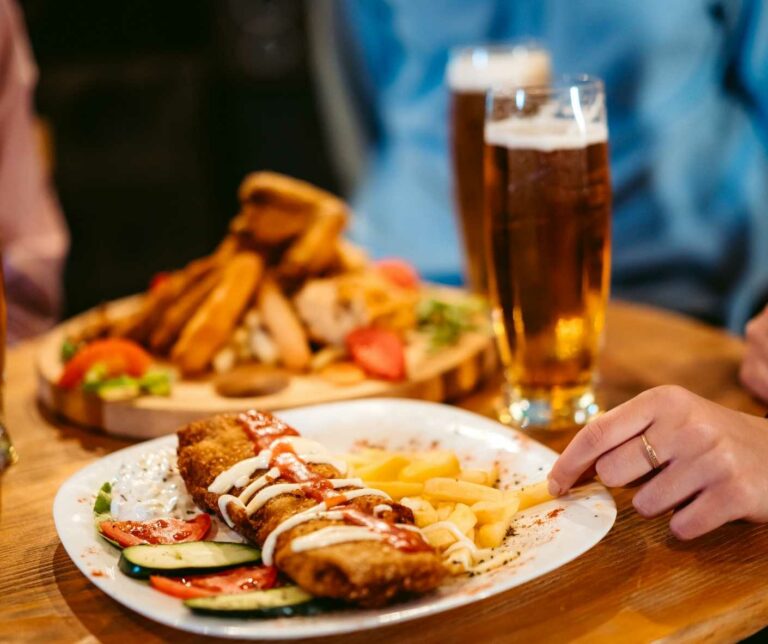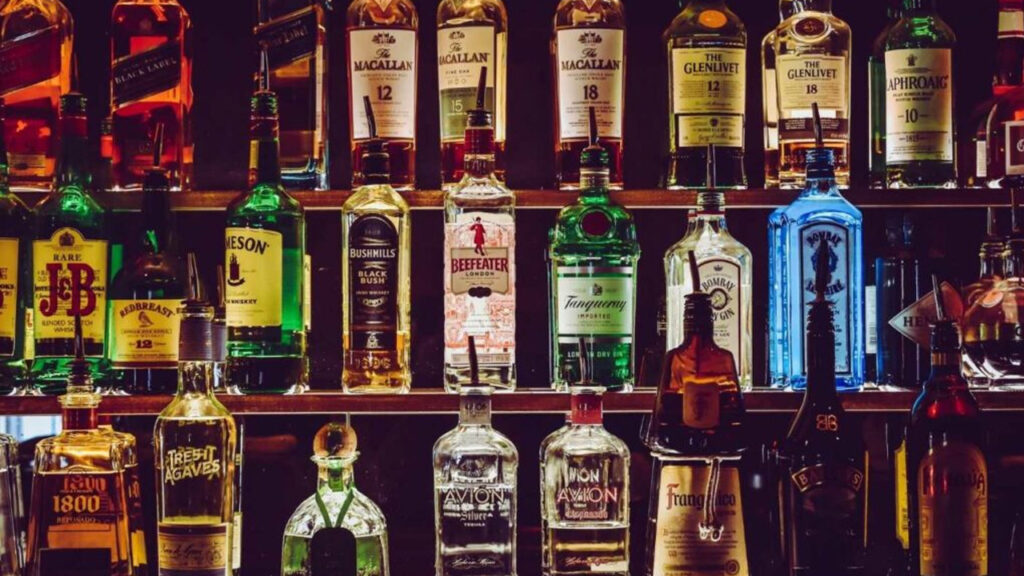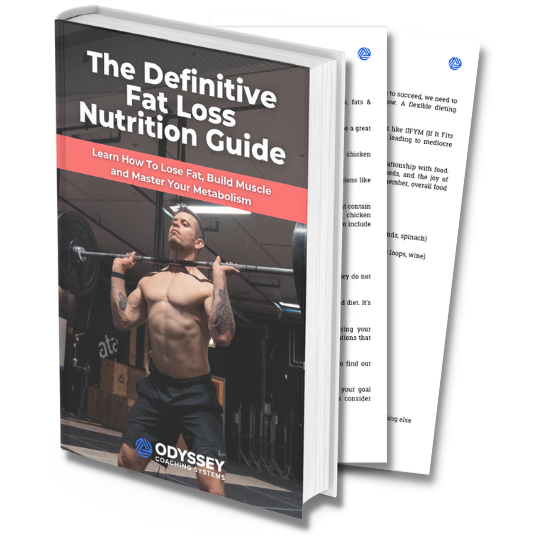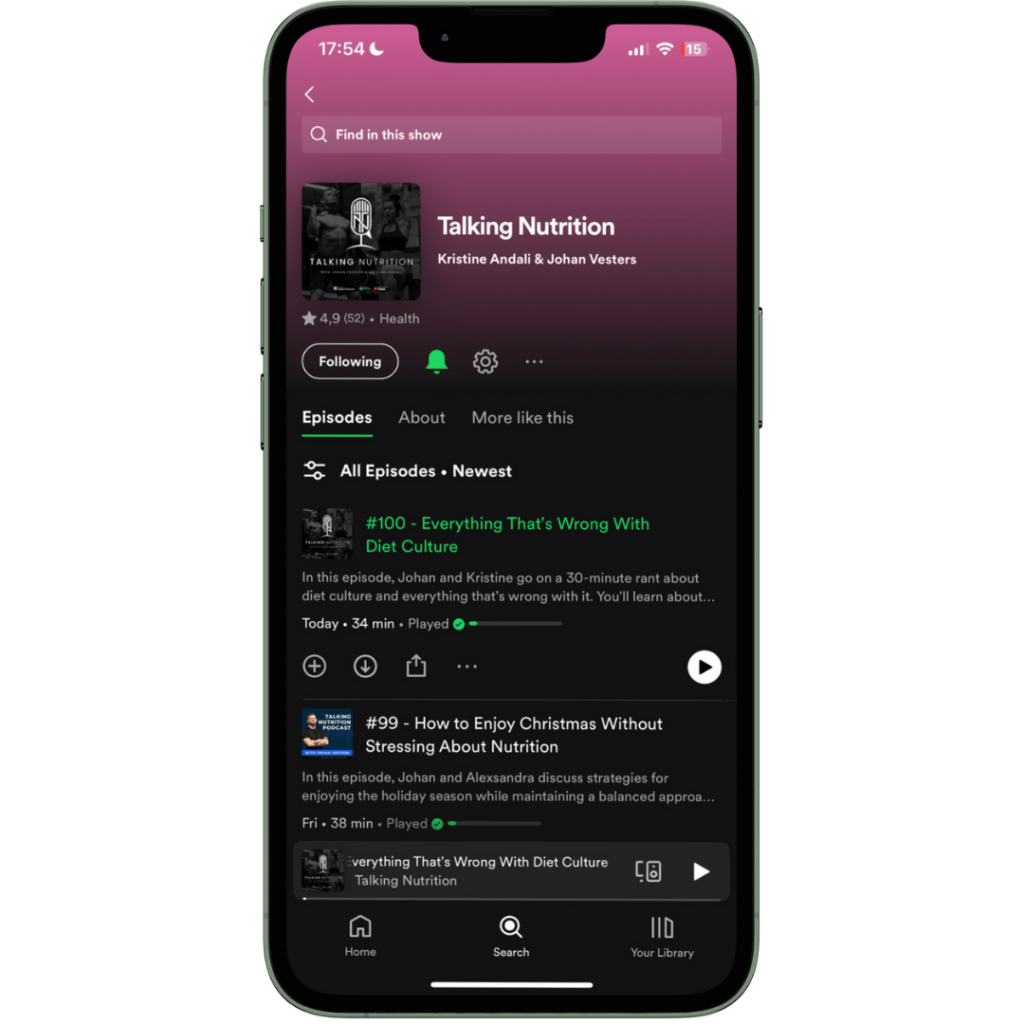Main Take-Aways
1. Alcohol itself doesn’t seem to make you gain body fat. Alcohol actually gets burned off for energy first (more on that in a bit). Then if you end up eating too many calories, fats are typically stored as body fat.
2. When you drink alcohol, your body will halt important processes so it can prioritize clearing your body from this harmful substance.
3. Like many other things, even weight loss and alcohol can go together, as long as it’s done in moderation.
Do weight loss and alcohol go together?
Well.. Drinking alcohol on a regular basis is definitely going to have an effect on your health and fitness.
But don’t worry, I’m going to show you exactly how even alcohol can be part of an overall healthy diet.
So make sure to stick around.
In this article we’re going to look at how alcohol can affect body weight, body composition, performance, and more in both moderate and heavy amounts.
Weight loss and alcohol.. does alcohol make you fatter?
Your body can only get energy (calories) from 4 sources: protein, carbs, fats, and alcohol. Unlike protein, carbs, and fats, alcohol is not a macronutrient but a toxin (poison) to the body.
While protein and carbs are about 4 calories per gram and fats about 9 calories per gram, alcohol gives you about 7 calories per gram.
Now if we’re specifically talking about WEIGHT loss, then alcohol can be included just like any other energy source. Because at the end of the day, it does come down to energy balance (calories in vs calories out).
You see, alcohol itself doesn’t seem to make you gain body fat. Alcohol actually gets burned off for energy first (more on that in a bit). Then if you end up eating too many calories, fats are typically stored as body fat.
The risk of overshooting calories
It’s when drinking goes from moderate to, well.. a lot more, things start to change. Let’s use beer as our example.
A generic beer contains about 150kcal, of which about 100kcal come from alcohol. So a moderate amount of 1-2 beers (150-300kcal) would still be relatively easy to puzzle into your caloric budget (click here to calculate your TDEE).
But make that 4-6 beers and we’re looking at 600-900kcal, the equivalent to 1-2 full meals. Those meals would come with plenty of nutrients, and would fill you up for a while. Alcohol on the other hand gives you empty calories, won’t fill you up at all, makes you more hungry (1) and lowers inhibition.
I mean who doesn’t love that late night kebap, burger or pizza when they’re a little buzzed after an evening of drinking?

How your body treats alcohol
When you drink alcohol, your body will halt important processes so it can prioritize clearing your body from that harmful substance.
Analogy time.
Imagine a car crash on the highway. The accident happens (aka drinking alcohol), and the police come in to halt traffic (aka other processes in the body are halted).
As help arrives, medics take care of the people involved and the car gets towed off (aka the body processing and getting rid of alcohol).
Then only once everything’s taken care off and the road has been cleared, do they open up the road and traffic can continue.
The same thing happens when you drink alcohol. Metabolism of protein, carbs, and fats are put on hold, as well as many other important processes throughout the body.
Alcohol’s effects on body composition, the bad news
Now this is where I’m going to have to list the negative effects alcohol does have on the body. Bear with me, because there will also be good news.
Alcohol negatively impacts:
- Increases cortisol levels (2).
- Muscle protein synthesis (3).
- Fat burning (4).
- Hormones like estrogen and progesterone in women (5) and testosterone in men (6).
- Sleep quantity and quality (7), of which both are crucial for muscle gain, fat loss and maintenance.
- The stomach, by causing inflammation (8).
- Performance.
- Recovery.
- Hydration status.
- And more..
After a night of drinking you’ll often lack motivation, and have less energy throughout the day to perform both in and out of the gym. Though these are mostly short term effects, and shouldn’t be too bad if you drink in moderation.
However, heavy drinking seems to do more harm than good. Alcohol consumption has been linked to many diseases and conditions (9) including diabetes, cardiovascular disease, liver disease, injury, and more.
Long story short: if we’re looking to optimize health, live a long life, and achieve high level fitness goals.. Then it may be a good idea to keep alcohol consumption to a minimum.
A case FOR alcohol consumption (in moderation)
Because I’m not here to bash alcohol, let me tell you that alcohol can be part of an overall healthy diet. There’s actually a big positive side to drinking for many people, which is having a good time.
Having a couple of drinks with your friends/relatives can have a very relaxing, de-stressing effect. And since our overall stress levels already seem to be quite high these days, enjoying a few drinks from time to time can be one way to manage stress.
Just make sure that your actions align with your goals and expectations. And that you are aware of the negative effects alcohol may have on progress and body composition. Especially if you have serious performance, physique, or health goals.
How to include alcohol in a healthy diet
Like many other things, even weight loss and alcohol can go together, as long as it’s done in moderation (10).
Many of our online nutrition coaching clients include a few drinks here and there, and manage to reach their goals just fine. Here are a few strategies we apply with them:
- Lowering fat intake for the day.
First of all because fats are highest in calories, which makes adjusting fat intake the easiest way to lower calories when needed. And second because alcohol does seem to affect fat burning.
While it’s also fine to lower carbs, these do include the more filling options, which is why I’d recommend lowering fats instead. Just make sure to leave protein untouched!
- Pre-logging their drinks, food, and snacks ahead of time.
This helps our online clients learn about how much these drinks are going to cost them calorie wise, plus this allows them to plan the rest of their day around it. We like to keep calories lower during the day, while doubling down on filling foods.
Tip: if you do decide to ‘save calories’ during the day, make sure to still include voluminous foods so you don’t end up feeling ravenous by the time the evening comes.
- Awareness around WHEN it’s ok to include drinks.
In a calorie deficit it will be harder to fit alcohol in, though at maintenance or in a surplus it’s much easier to get away with it. With this in mind, consider taking it easy on the drinks when you’re in a fat loss phase, and save it for when you have more calories to play with.
- Stick to lower calorie drinks.
Most calories in alcoholic drinks will come from the alcohol itself. But you can still make some easy swaps to keep your calories in check. An example would be going for a Vodka Soda instead of a Vodka Redbull.
- Drinking lots of water before, during and after the night of drinking.
This can help you stick to the amount of drinks you planned on having, plus it counters the dehydrating effects alcohol has.
- Planning for a rest day the next day.
The day after, it’s probably a good idea to take it easy and to just go for a nice long walk instead of going for another run or heavy lifting session. Time to recharge!
Fitness, weight loss, and alcohol
Alright, with all that you should have a good idea of what’s going to be the best approach for you.
As long as you maintain your energy balance, then you can fit in some alcohol in moderation. But remember. As you drink more and more, calories quickly add up and the chances of a little midnight binge become bigger and bigger.
Last point: think about how well YOU do with alcohol.
What ‘type’ of drinker are you? Are you able to stick to a few drinks, or is it all or nothing? Do your friends have a certain expectation of you when it comes to a night out? You know yourself best.
Weigh the pros and cons, and adjust your alcohol intake accordingly.
- Yeomans, Martin R. “Short term effects of alcohol on appetite in humans. Effects of context and restrained eating.” Appetite vol. 55,3 (2010): 565-73. doi:10.1016/j.appet.2010.09.005
- Spencer, R L, and K E Hutchison. “Alcohol, aging, and the stress response.” Alcohol research & health : the journal of the National Institute on Alcohol Abuse and Alcoholism vol. 23,4 (1999): 272-83.
- Parr, Evelyn B et al. “Alcohol ingestion impairs maximal post-exercise rates of myofibrillar protein synthesis following a single bout of concurrent training.” PloS one vol. 9,2 e88384. 12 Feb. 2014, doi:10.1371/journal.pone.0088384
- Jeon, Sookyoung, and Rotonya Carr. “Alcohol effects on hepatic lipid metabolism.” Journal of lipid research vol. 61,4 (2020): 470-479. doi:10.1194/jlr.R119000547
- Emanuele, Mary Ann et al. “Alcohol’s effects on female reproductive function.” Alcohol research & health : the journal of the National Institute on Alcohol Abuse and Alcoholism vol. 26,4 (2002): 274-81.
- Emanuele, M A, and N V Emanuele. “Alcohol’s effects on male reproduction.” Alcohol health and research world vol. 22,3 (1998): 195-201.
- Roehrs, T, and T Roth. “Sleep, sleepiness, and alcohol use.” Alcohol research & health : the journal of the National Institute on Alcohol Abuse and Alcoholism vol. 25,2 (2001): 101-9.
- Bishehsari, Faraz et al. “Alcohol and Gut-Derived Inflammation.” Alcohol research : current reviews vol. 38,2 (2017): 163-171.
- Rehm, Jürgen. “The risks associated with alcohol use and alcoholism.” Alcohol research & health : the journal of the National Institute on Alcohol Abuse and Alcoholism vol. 34,2 (2011): 135-43.
- Flechtner-Mors, M et al. “Effects of moderate consumption of white wine on weight loss in overweight and obese subjects.” International journal of obesity and related metabolic disorders : journal of the International Association for the Study of Obesity vol. 28,11 (2004): 1420-6. doi:10.1038/sj.ijo.0802786





